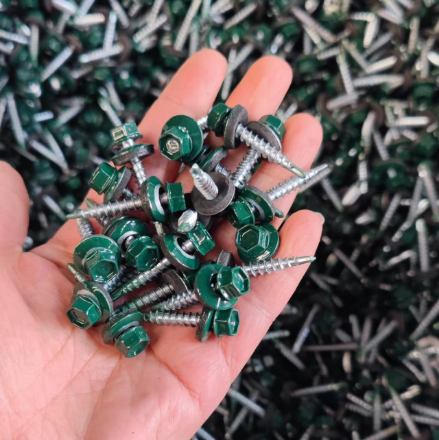curved spring lock washer manufacturer
Understanding Curved Spring Lock Washers A Manufacturer's Insight
Curved spring lock washers are essential components in various industries, designed to increase the reliability and safety of bolted connections. Understanding their manufacturing process, features, and applications gives insight into their importance across different sectors. This article explores the characteristics of curved spring lock washers and the role of manufacturers in producing these vital components.
What are Curved Spring Lock Washers?
Curved spring lock washers are a type of fastening device primarily used to prevent loosening in bolted assemblies. They are designed with a slight curvature, which provides an inherent spring action when installed. This spring effect allows the washer to maintain continuous pressure against the bolt and the joint it secures, counteracting any vibrations or dynamic loads that may cause loosening.
The unique design features a central hole with a curved body, which generates tension when compressed. When a bolt is tightened, the washer flattens slightly, creating a locking mechanism that resists rotation and movement. This feature is particularly valuable in high-vibration environments, such as automotive and aerospace applications.
The Manufacturing Process
The manufacturing of curved spring lock washers involves several precise and intricate steps. Starting with raw materials, manufacturers typically use high-carbon steel, stainless steel, or other alloyed materials, which provide the necessary strength and flexibility. The choice of material often depends on the specific application requirements, such as corrosion resistance or temperature tolerance.
1. Material Cutting The first step involves cutting the chosen material into the appropriate shape and size. Sheets of metal are often laser cut or stamped according to the specifications needed for various applications.
2. Shaping and Forming After cutting, the metal pieces undergo a shaping process where they are formed into their curved shape. This step may involve using hydraulic presses or specialized dies that create the necessary curvature while ensuring that the desired tolerances are maintained.
curved spring lock washer manufacturer

3. Heat Treatment To enhance the mechanical properties of the washers, manufacturers may subject them to heat treatment. This process improves the strength and durability of the material, ensuring the washers can withstand the stresses they will encounter in use.
4. Surface Treatment Depending on their intended use, curved spring lock washers may undergo surface treatments to improve corrosion resistance or to enhance mechanical properties. This can include processes like plating or coating with materials like zinc or nickel.
5. Quality Control Before reaching the market, each batch of washers goes through rigorous quality control procedures. Manufacturers conduct tests to measure the hardness, tensile strength, and fatigue resistance of the washers to ensure they meet industry standards and customer specifications.
6. Packaging and Distribution Once the washers pass quality checks, they are packaged for distribution. Manufacturers often offer varying quantities and packaging solutions to meet the needs of their clients.
Applications of Curved Spring Lock Washers
Curved spring lock washers are utilized in various applications where a secure connection is crucial. The automotive industry frequently employs them to secure engine components, chassis parts, and suspension systems. The aerospace sector also relies on these washers for critical connections in aircraft assembly, where even the smallest loosening can lead to catastrophic failure.
Moreover, industries such as construction, manufacturing, and electronics utilize curved spring lock washers in machinery and equipment assembly. They are particularly advantageous in applications subject to repetitive motion or vibration, helping to maintain long-term reliability.
Conclusion
Curved spring lock washers play a vital role in ensuring the integrity and reliability of mechanical connections across numerous industries. The meticulous process of their manufacturing—from material selection to quality control—ensures that these small yet significant components contribute to the safety and performance of various systems. For manufacturers, understanding the intricacies of producing these washers is essential for delivering high-quality products that meet the stringent demands of modern engineering applications. As industries continue to innovate and evolve, the role of curved spring lock washers will undoubtedly remain a cornerstone in maintaining effective and secure mechanical assemblies.
-
Top Choices for Plasterboard FixingNewsDec.26,2024
-
The Versatility of Specialty WashersNewsDec.26,2024
-
Secure Your ProjectsNewsDec.26,2024
-
Essential Screws for Chipboard Flooring ProjectsNewsDec.26,2024
-
Choosing the Right Drywall ScrewsNewsDec.26,2024
-
Black Phosphate Screws for Superior PerformanceNewsDec.26,2024
-
The Versatile Choice of Nylon Flat Washers for Your NeedsNewsDec.18,2024










